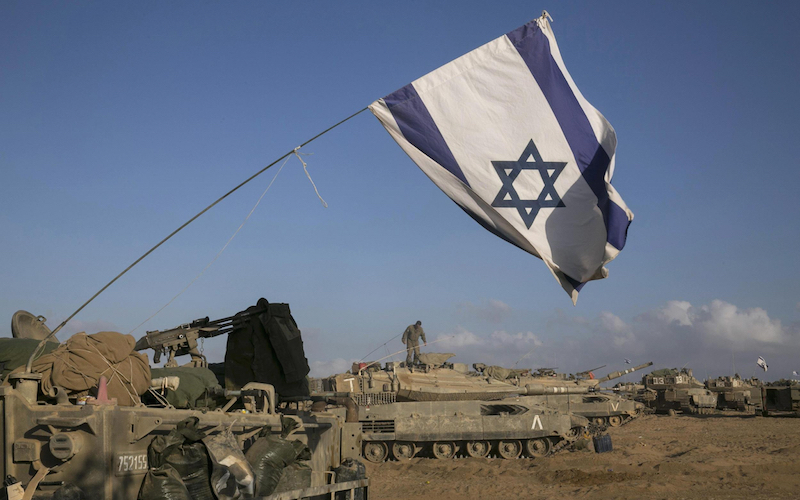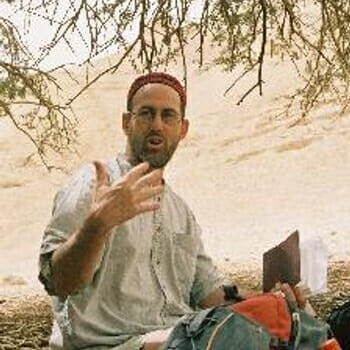
Untying the Palestinian Israeli Knot
The intractable century long conflict between the Israelis and Palestinians reads like “Knots” by R.D. Laing:
The situation on the ground needs to improve
The violence is caused because the situation on the ground has not improved
The situation on the ground will not improve until the violence ends
Calls to end the violence will not happen until the situation on the ground improves
Like a closed loop system with no exit the next line would read, “the situation on the ground needs to improve.” The challenge is how to untie the knot? The Zionist-Palestinian conflict is fast approaching the century marker if we use the Balfour Declaration of November 2, 1917 as its beginning. While the conflict endures and it has gone through various stages, the world has changed and moved on in many ways. The chaos that ISIS is bringing to the region and the larger world, presents a serious challenge as well as an opportunity for Israelis and Palestinians.
Palestinians and Israelis need to wake up to the new reality that they both face a greater enemy than each other. ISIS, and whatever other form radical extremist Islam will produce, has Israel and Palestinians on their shopping list.
The longer the conflict between Palestinians and Israelis remains unsettled the more it creates the right conditions to strengthen ISIS and cause chaos for Israelis and Palestinians.
Many in Israel are quick to point out that withdrawing from the Palestinian territories of the West Bank will place Israel at a strategic disadvantage where radical elements will take over and threaten a much smaller and narrower Israel. They point to the examples of the withdrawals from Southern Lebanon and Gaza which have brought radical forces to Israel’s northern and southern borders. There are two problems with that reasoning.
First, the withdrawals from Southern Lebanon and Gaza were unilateral events on Israel’s part which led to the realities we see on those borders. This is why Netanyahu’s threat of Israeli unilateral withdrawal from the West Bank, recently made at the Center for American Progress in Washington, DC, would be a disaster and only create the right conditions for more radical elements to challenge the Palestinian Authority that are more extreme than Hamas. An agreement with the Palestinians must be a mutually agreed to settlement of the conflict. A negotiated accord creates more stable relationships, as Israel has discovered with negotiated agreements with Egypt and Jordan.
If a viable Palestinian state does not emerge soon, the Palestinian populace which culturally is opposed to radical extremist Islam, will become more susceptible to its reach. This is the second fallacy in the Israeli argument. It goes without question, younger Palestinians see no hope under the ongoing, almost fifty year old, occupation. Forty percent of the Palestinian population is under the age of 14. It is only a matter of time, certainly within the next decade, for this large group of Palestinians to become radicalized without the emergence of a Palestinian state. The number of young teenagers participating in this most recent hebbeh or intifada should be seen by the Israelis as a very serious canary in the coal mine warning. These numbers also point to the demographic tidal wave coming ashore should Israel wish to remain a democratic Jewish state.
There certainly is a story line where the Palestinian state becomes a center of radical extremist Islam. What the Israelis need to understand is that a negotiated arrangement with the Palestinians which leads to the creation of a Palestinian state can contain within it elements to lessen that outcome, particularly if conditions are created which allows for Palestinians to thrive politically and economically. Moreover, the very establishment of a Palestinian state and the end of the occupation will create a new and different framework which will reduce the conditions for radicalization of the Palestinian population. There are no guarantees, and the Israeli fears are real as they ponder a Palestinian state. However, if a Palestinian state is not established it is almost guaranteed that Israel will face a radical Palestinian entity.
If the Palestinians have any hope of seeing a Palestinian state established they need to realize they will have to painfully compromise with Israel. The longer they hold out on not admitting the validity of the historical connection of the Jewish people to the land they do themselves a disservice. Such an attitude in no way takes away from the legitimacy of their own connection to the same land, rather it will make the Israelis more magnanimous in negotiations. By the same token, the Israelis will need to acknowledge how the Zionist endeavor has been seen by the local Arab population as a colonial imperialist endeavor. This too will not take away from the historical legitimacy of the Zionist enterprise but will address a century long grievance of the Palestinians.
In addition, the Palestinians will need to compromise when it comes to the borders of a Palestinian state. In their eyes, they have already lost 78% of Palestine. Why should they have to give up any more. There is a clear logic there, but there are other realities on the ground that have changed over the past fifty years.
The Palestinians can decide not to make these agonizing choices, but they too face the same threat as the Israelis when it comes to radical Islam taking over the Palestinians. They can reach a negotiated settlement with the Israelis as outlined above and see their dream of a Palestinian state realized, or they can decide not to and succumb to a worse fate that will emerge out of the despair of continued occupation.
The reluctance of both sides to take the needed steps with their perceived enemies can be mitigated by looking towards the work of scores and scores of Israeli and Palestinian People to People organizations on the ground, such as the Arava Institute for Environmental Studies, the Israel Palestine Center for Research and Information, the Parents Circle, and Kids4Peace just to name a few. These grassroots organizations model and build upon, in the words of the Reverend Martin Luther King, “the inescapable network of mutuality,” which is so necessary to build a better future for both peoples.
In short, it is time for the Israelis and Palestinians to enter a pas de deux of enemies in order to avoid a greater danger.

